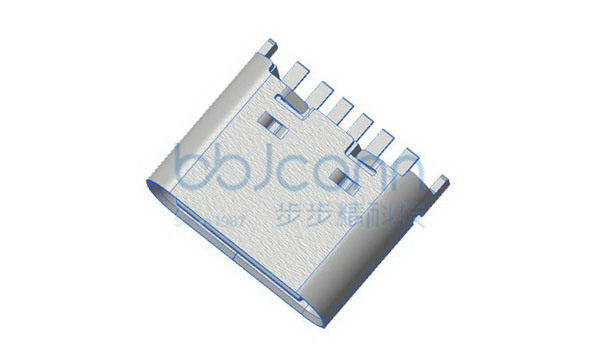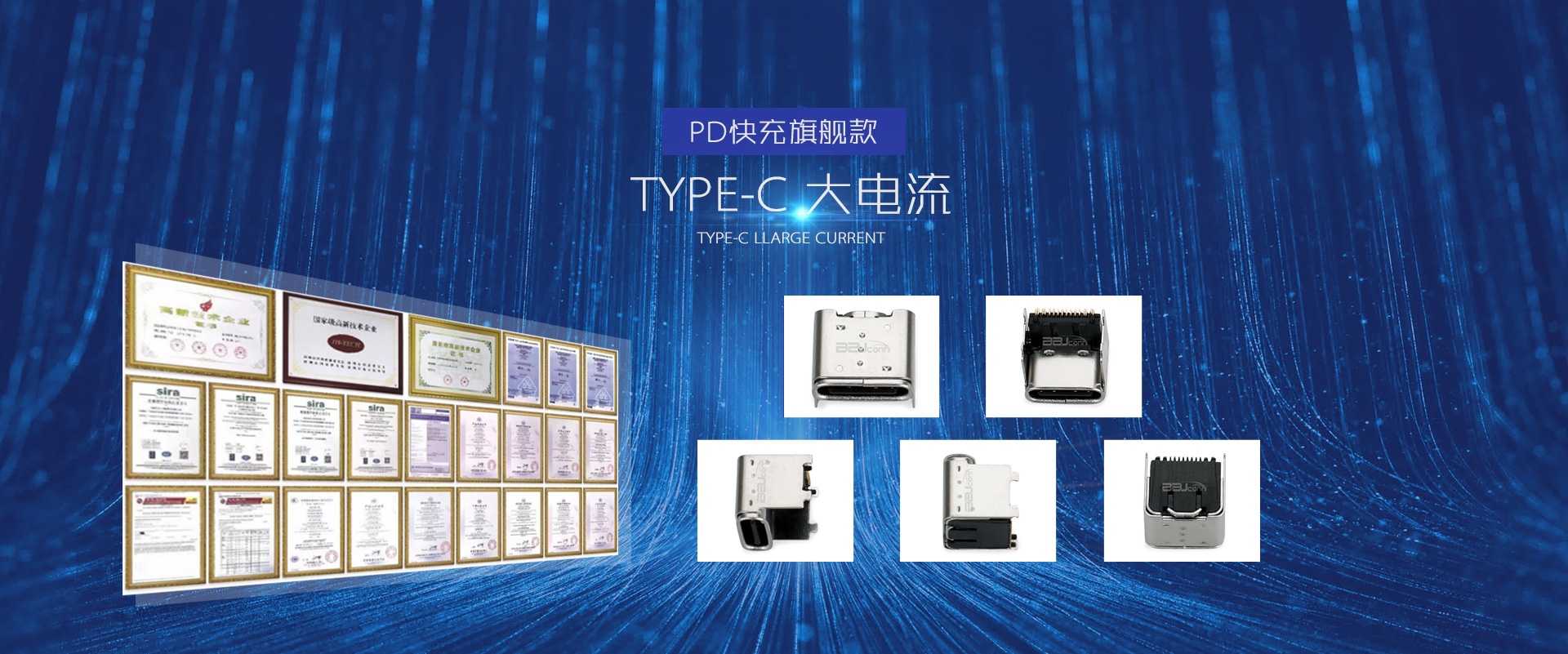Environmental test analysis of TYPE-C connector
TYPE-C connectorAs a widely used connection standard in modern electronic equipment, its design and manufacturing must not only consider functionality and user experience, but also pay attention to environmental protection and sustainable development. Therefore, it is particularly important to carry out environmental testing of TYPE-C connectors. This article The environmental testing methods and significance of TYPE-C connectors will be discussed in depth, with a view to providing a reference for the industry.
Material selection and testing of TYPE-C connectors
The environmental testing of TYPE-C connectors must first start with its material selection. The materials used to manufacture TYPE-C connectors should comply with international environmental standards, such as the EU's RoHS (Restriction of Hazardous Substances Directive) and REACH (Chemical Registration, Evaluation, Licensing) and restrictions) regulations. Through the analysis of raw materials, it is ensured that TYPE-C connectors do not use or reduce the use of harmful substances during the production process, such as lead, cadmium, mercury and polybrominated biphenyls. In addition, for the recyclability of materials, test their recyclability after the end of the life cycle. The treatment method is also an important part of environmental testing.

Production process and energy consumption of TYPE-C connector
The production process of TYPE-C connectors is also an important part of environmental testing. Energy consumption and resource utilization efficiency during the production process directly affect the environment. Enterprises should adopt energy-saving and emission-reducing production processes, such as introducing automation and intelligent manufacturing technology, to Reduce energy consumption during the production process. At the same time, the waste generated during the production process is evaluated and processed to ensure compliance with environmental standards. In addition, during the production process of TYPE-C connectors, its resistance to water and air needs to be tested. Pollution emissions ensure that all emissions are within legal standards.
Service life and performance test of TYPE-C connector
The environmental testing of TYPE-C connectors also needs to focus on its service life and performance. High-quality TYPE-C connectors not only perform well when used, but also have a long service life. By conducting durability tests, such as plugging and unplugging Frequency testing and temperature resistance testing ensure that the connector will not experience performance degradation during long-term use, thereby reducing the waste of resources caused by frequent replacement. Especially in terms of electrical performance, it is necessary to test its performance under high loads and extreme environments. performance to ensure its safety and reliability.
Recycling and reuse of TYPE-C connectors
The environmental testing of TYPE-C connectors also includes the assessment of their recycling and reuse. With the rapid upgrading of electronic products, how to effectively recycle and reuse TYPE-C connectors has become an important issue. Enterprises should establish a complete Recycling mechanism, cooperate with recycling companies to ensure that used TYPE-C connectors can be properly processed. During the testing process, the reuse rate of recycled materials is evaluated to ensure that they can be converted into new products or materials, thereby realizing resource utilization. Recycling.
Market compliance and standardization of TYPE-C connectors
The environmental testing of TYPE-C connectors ultimately needs to ensure that it meets market compliance and standardization requirements. Countries have different environmental requirements for electronic products, and companies need to conduct corresponding testing and certification according to the relevant regulations of the target market. For example , TYPE-C connectors sold in the EU market must comply with CE certification to ensure that their impact on the environment is minimized during use and disposal. Regular environmental testing is carried out by cooperating with relevant testing agencies to ensure product compliance. and market competitiveness.
The environmental protection test of TYPE-C connectors is not only a guarantee of product quality, but also a responsibility for environmental protection. With the increasing global emphasis on the concept of sustainable development, companies should consider environmental protection when designing and producing TYPE-C connectors. Testing is an important link to achieve a win-win situation of economic benefits and environmental protection. Through the above analysis, we can see that carrying out comprehensive environmental testing is crucial to the sustainable development of TYPE-C connectors. We hope that this article can provide relevant companies with Some helpful inspirations and references.
